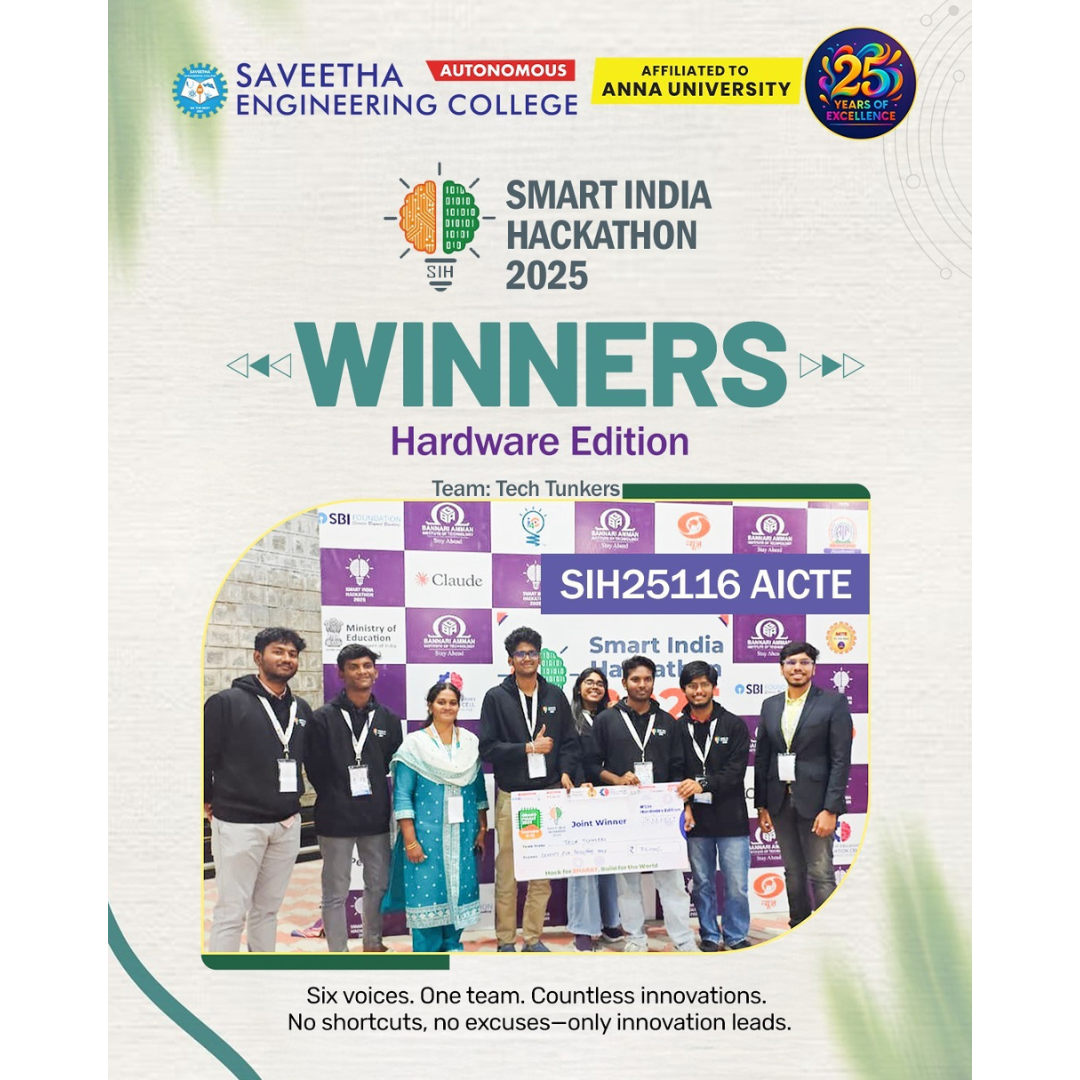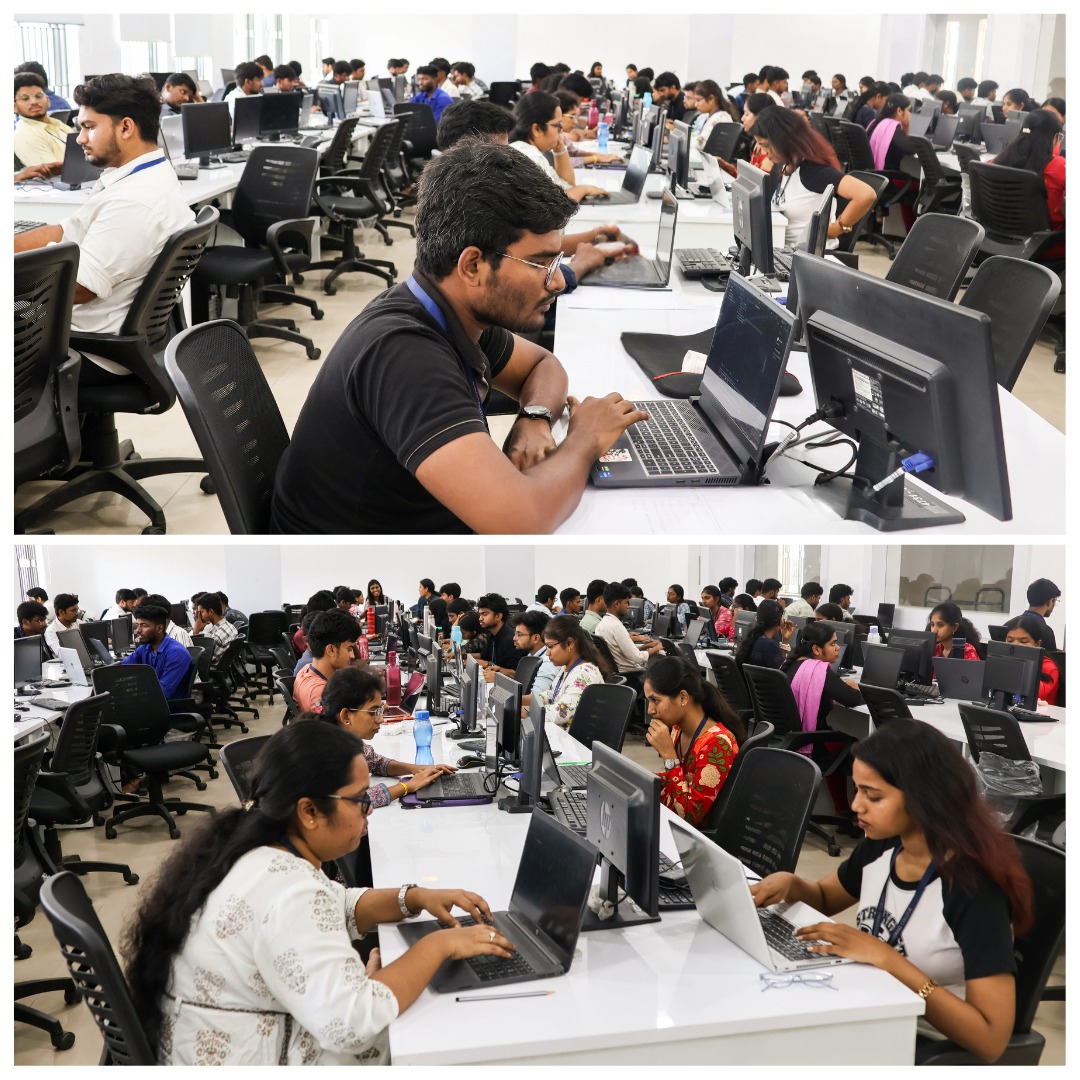About the Department
Computer Science and Engineering (Internet of Things) is a 4 year undergraduate programme which emphasizes comprehensive knowledge of computer science, sensors, internet applications, computer networks etc. Internet of Things (IoT) is an interdisciplinary program that comes under the department of computer science and engineering. Recently, various applications have enormously increased in the past few years since it has a vast scope of usage. IoT generally refers to a growing network of internet-connected devices that find various applications in engineering and sciences. When objects are interconnected across the world, it allows people or things using those objects to be connected anytime.
Key Features

Centre of Excellence
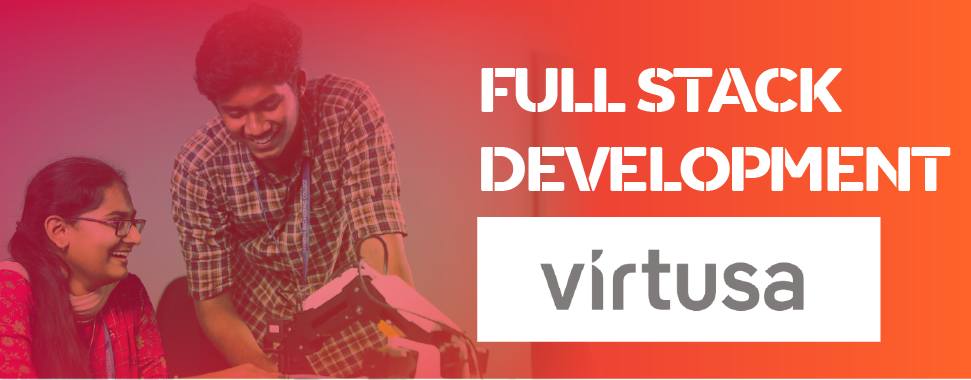
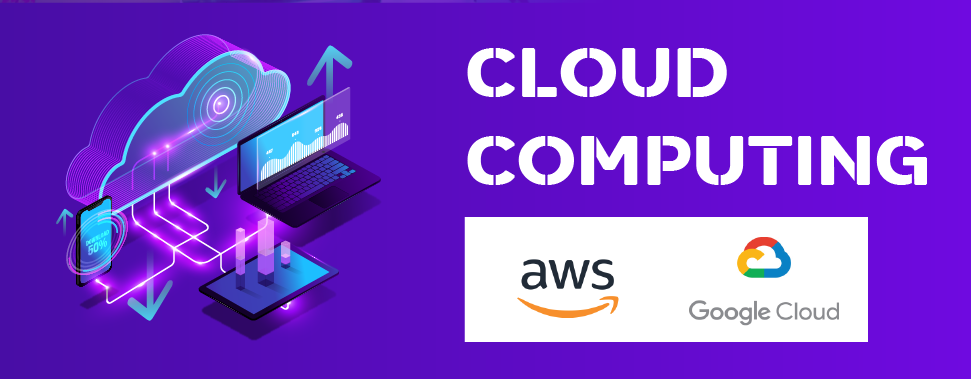
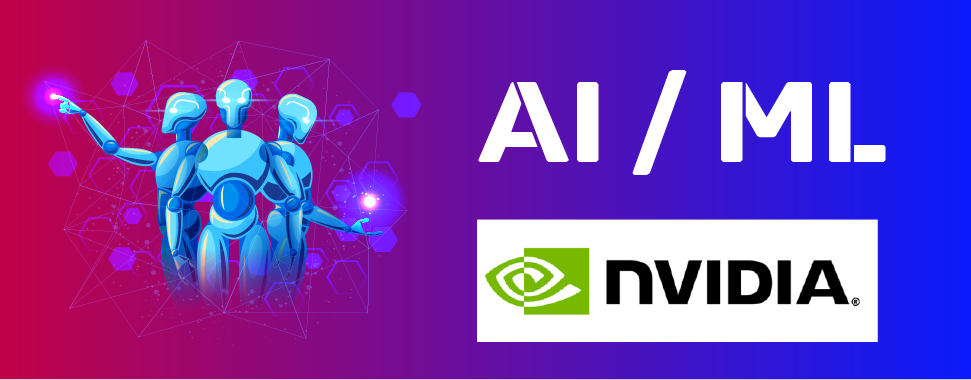
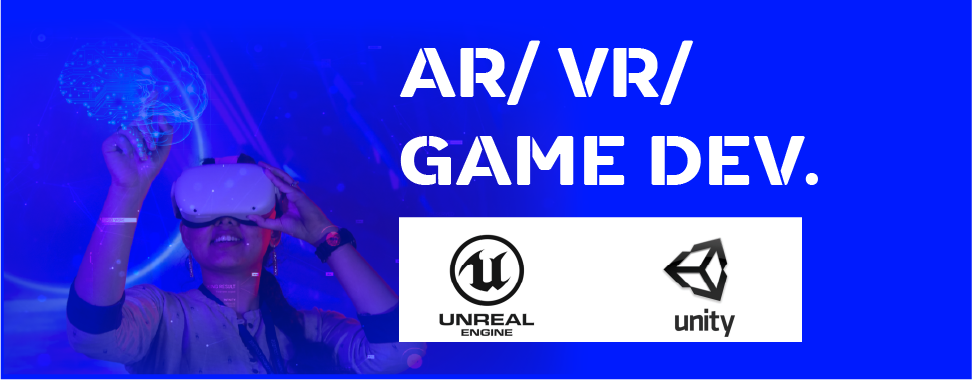
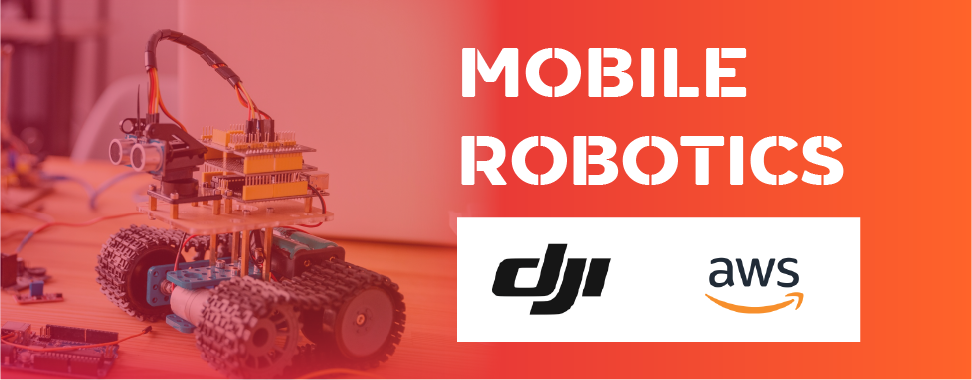
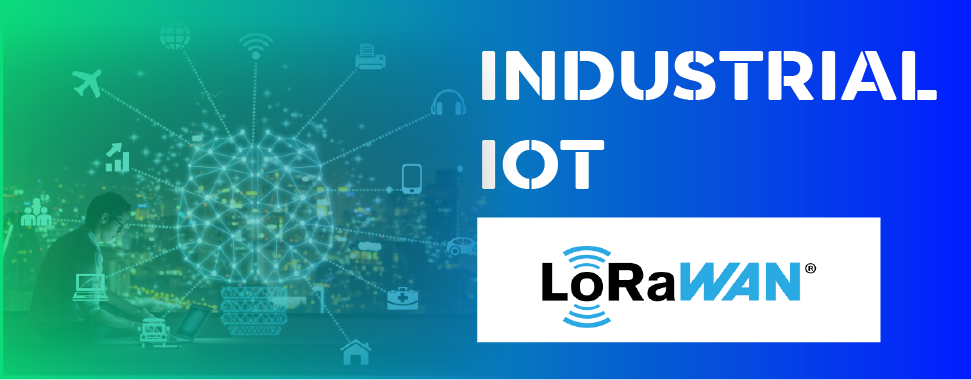
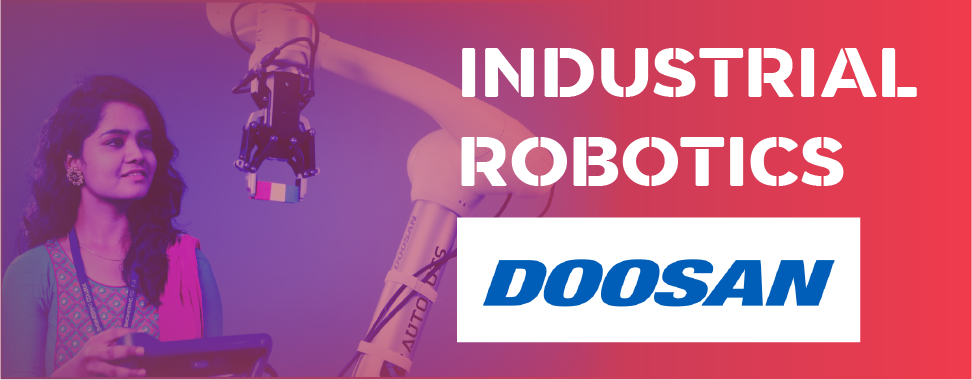


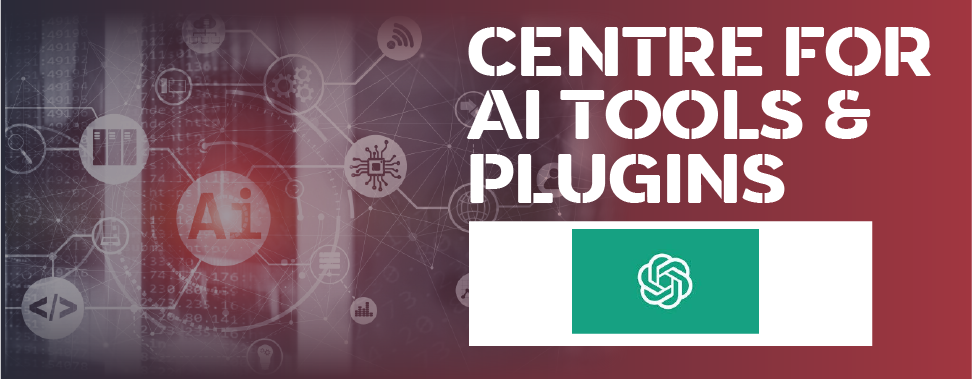
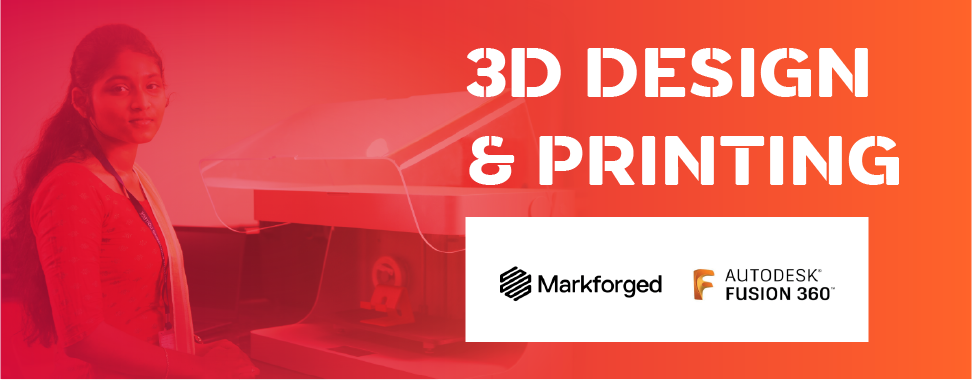
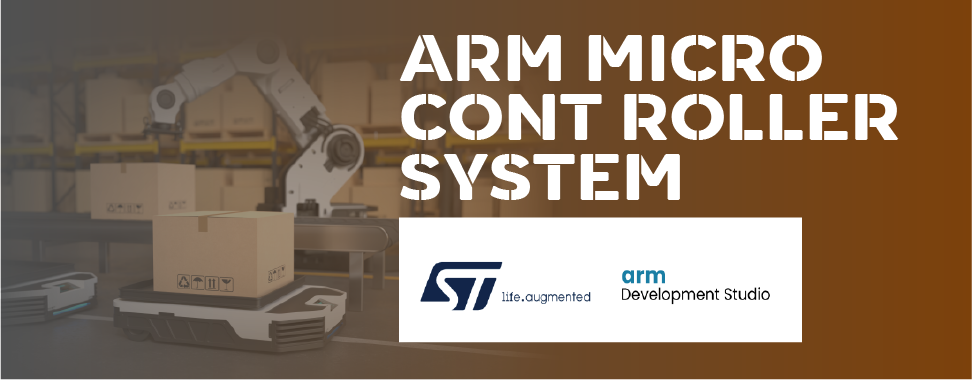
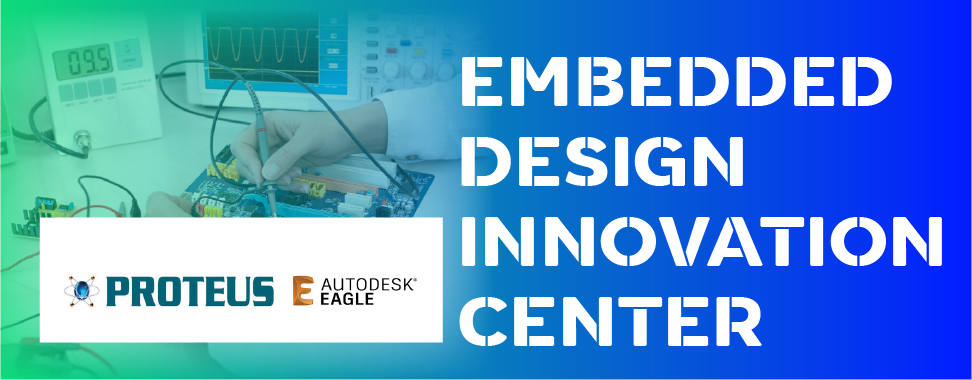
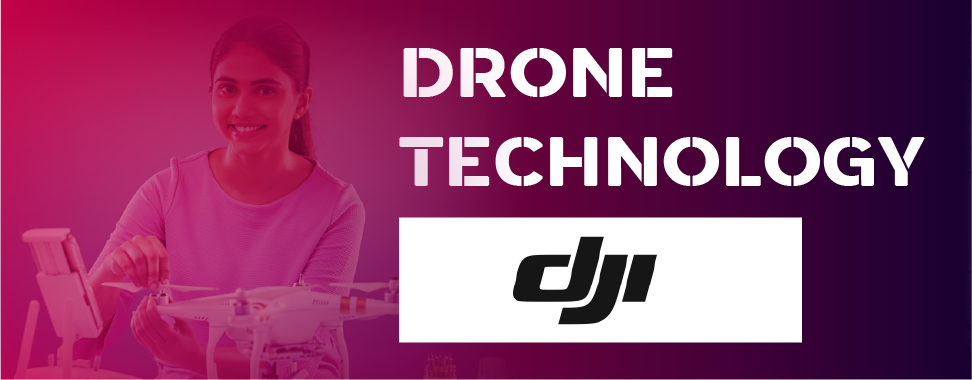
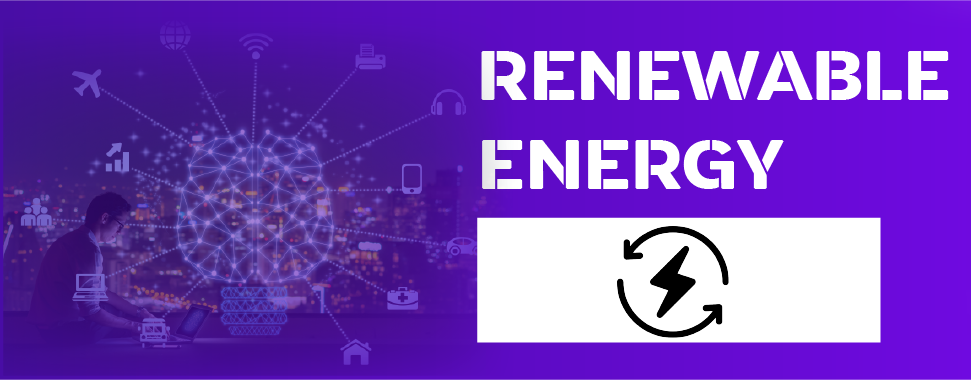
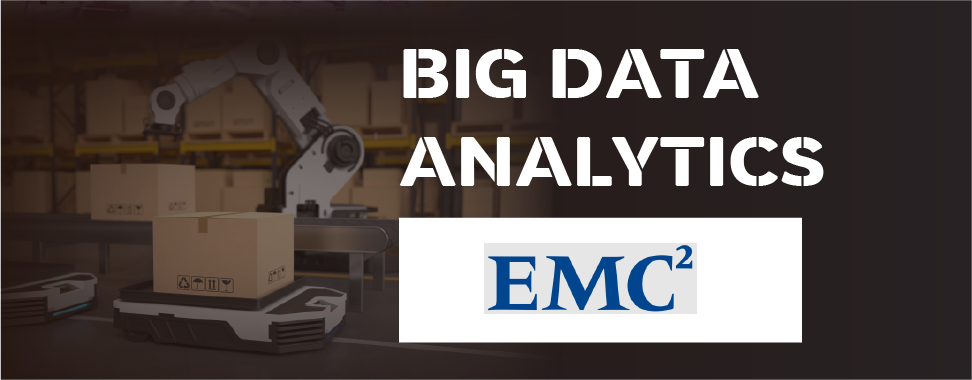


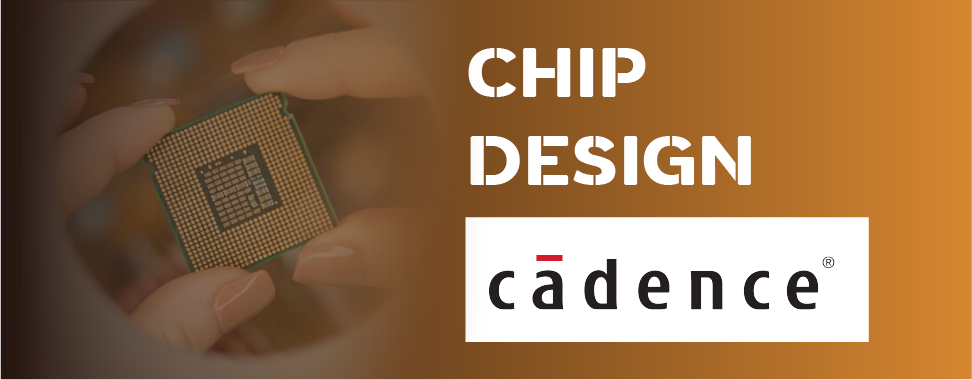
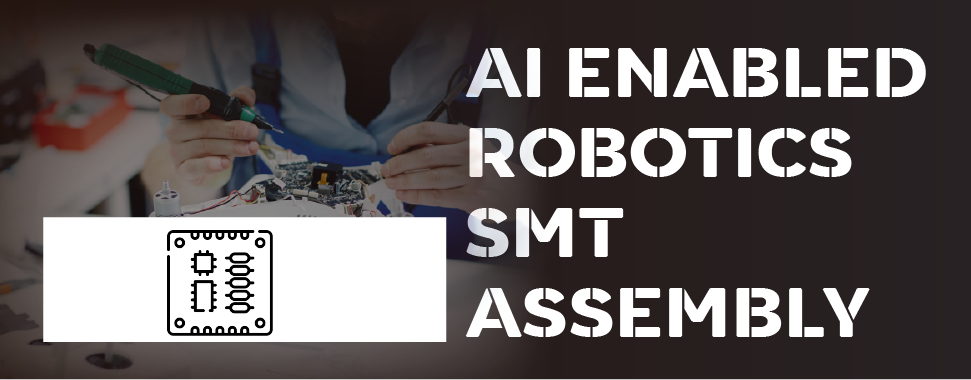
News and Events
🎉 Winners of Smart India Hackathon 2025 – Hardware Edition
✨ Saveetha Engineering College (Autonomous) proudly announces that “Team Tech Tunkers” has emerged as the National Champion of the “Smart
🛡️ Shaping Cyber Experts at SEC with Securin
💼 SEC (Autonomous) proudly conducted the “Securin Placement Drive” for the SCOFT 2026 Batch! This drive featured Assessment Tests and
Securin Powers Tech Dreams at SEC!
🎉 Saveetha Engineering College (Autonomous) is happy to welcome “Securin” for the SCOFT 2026 Batch Campus Hiring Drive! 💼 💫 Securin is
VISION
To be uniquely renowned to position the department and to establish synergistic relationships across the entire spectrum of disciplines involved with computing to Internet of Things in Computer Science and devoting themselves to take the maximal advantage of modern Intelligent Technologies.
MISSION
- To pursue our vision by striving for excellence in creating, applying, and imparting knowledge in the Internet of Things.
- To pursue a comprehensive educational system, research in collaboration with industry and government and to disseminate knowledge through scholarly publications.
- To provide service through professional societies to the community, the state, and the nation.
PROGRAMME EDUCATIONAL OBJECTIVES (PEOs)
- Graduates, within four years of graduation, should demonstrate peer-recognized expertise together with the ability to articulate that expertise and use it for contemporary problem-solving in the analysis, design, implementation and evaluation of IoT systems.
- Graduates, within four years of graduation, should demonstrate engagement in the engineering profession, locally and globally, by contributing to the ethical, competent, and creative practice of engineering or other professional careers.
- Graduates, within four years of graduation, should demonstrate sustained learning and adapt to a constantly changing field through graduate work, professional development, and self-study.
- Graduates, within four years of graduation, should demonstrate leadership and initiative to ethically advance professional and organizational goals, facilitate the achievements of others, and obtain substantive results.
- Graduates, within four years of graduation, should demonstrate a commitment to teamwork while working with others of diverse cultural and interdisciplinary backgrounds.
PROGRAMME OUTCOMES (POs)
Engineering Graduates will be able to:
- Engineering Knowledge: Apply the knowledge of mathematics, science, engineering fundamentals, and an engineering specialization to the solution of complex engineering problems.
- Problem Analysis: Identity, formulate, review research literature, and analyze complex engineering problems reaching substantiated conclusions using the first principles of mathematics, natural sciences, and engineering sciences.
- Design/Development of Solutions: Design solutions for complex engineering problems and design system components or processes that meet the specified needs with appropriate consideration for the public health and safety, and the cultural, societal, and environmental considerations.
- Conduct Investigations of Complex Problems: Use research-based knowledge and research methods including design of experiments, analysis, and interpretation of data, and synthesis of the information to provide valid conclusions.
- Modern Tool Usage: Create, select, and apply appropriate techniques, resources, and modern engineering and IT tools including prediction and modeling to complex engineering activities with an understanding of the limitations.
- The Engineer and Society: Apply reasoning informed by the contextual knowledge to assess societal, health, safety, legal and cultural issues and the consequent responsibilities relevant to the professional engineering practice.
- Environment and Sustainability: Understand the impact of the professional engineering solutions in societal and environmental contexts, and demonstrate the knowledge of, and need for sustainable development.
- Ethics: Apply ethical principles and commit to professional ethics and responsibilities and norms of the engineering practice.
- Individual and Teamwork: Function effectively as an individual, and as a member or leader in diverse teams, and in multidisciplinary settings.
- Communication: Communicate effectively on complex engineering activities with the engineering community and with society at large, such as being able to comprehend and write effective reports and design documentation, make effective presentations, and give and receive clear instructions.
- Project Management and Finance: Demonstrate knowledge and understanding of the engineering and management principles and apply these to one’s own work, as a member and leader in a team, to manage projects and in multidisciplinary environments.
- Life-Long Learning: Recognize the need for, and have the preparation and ability to engage in independent and life-long learning in the broadest context of technological change.
PROGRAMME SPECIFIC OUTCOMES (PSOs)
- Professional Skills: Design and analyze optimal solutions to real-world problems in IoT.
- Technical Skills: Design computing systems based on IOT.
- Entrepreneurship Skills: Ability to lead an embedded product development company/team.
- Research Skills: Ability to identify real-world research problems and provide IOT based solutions.

